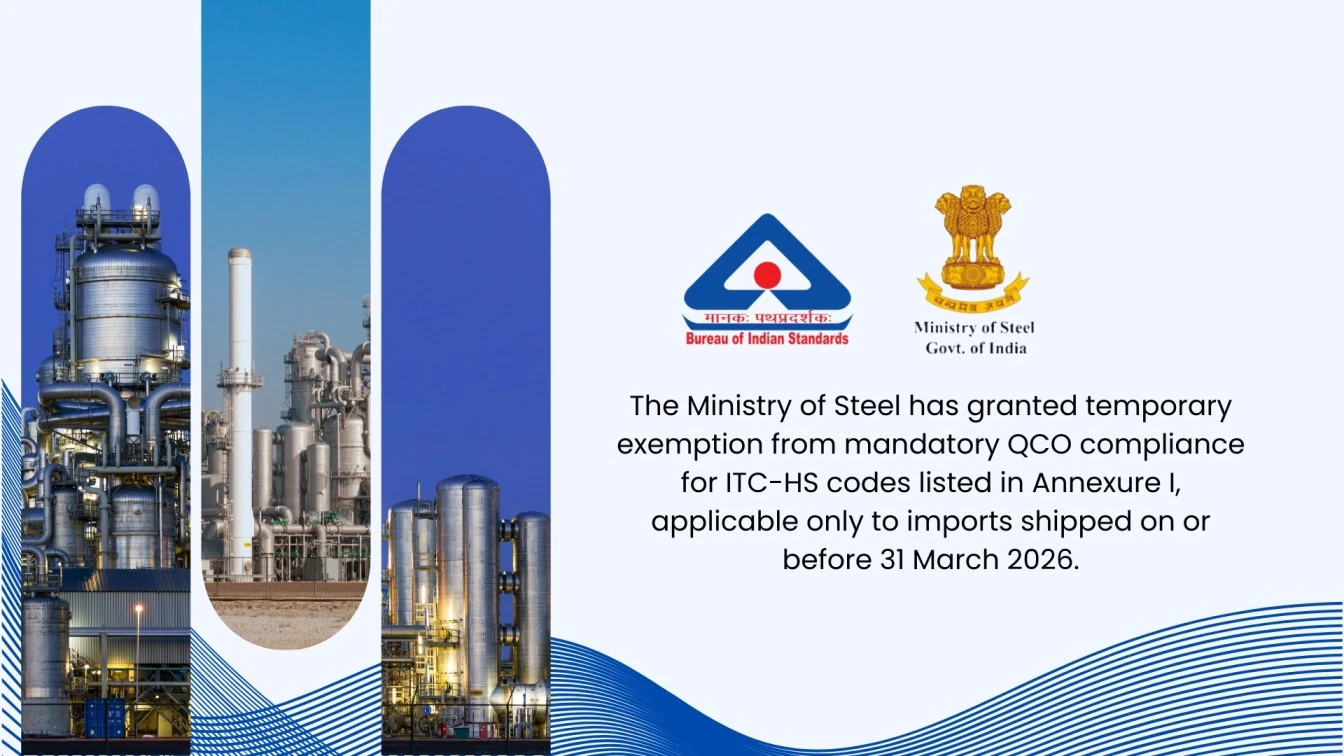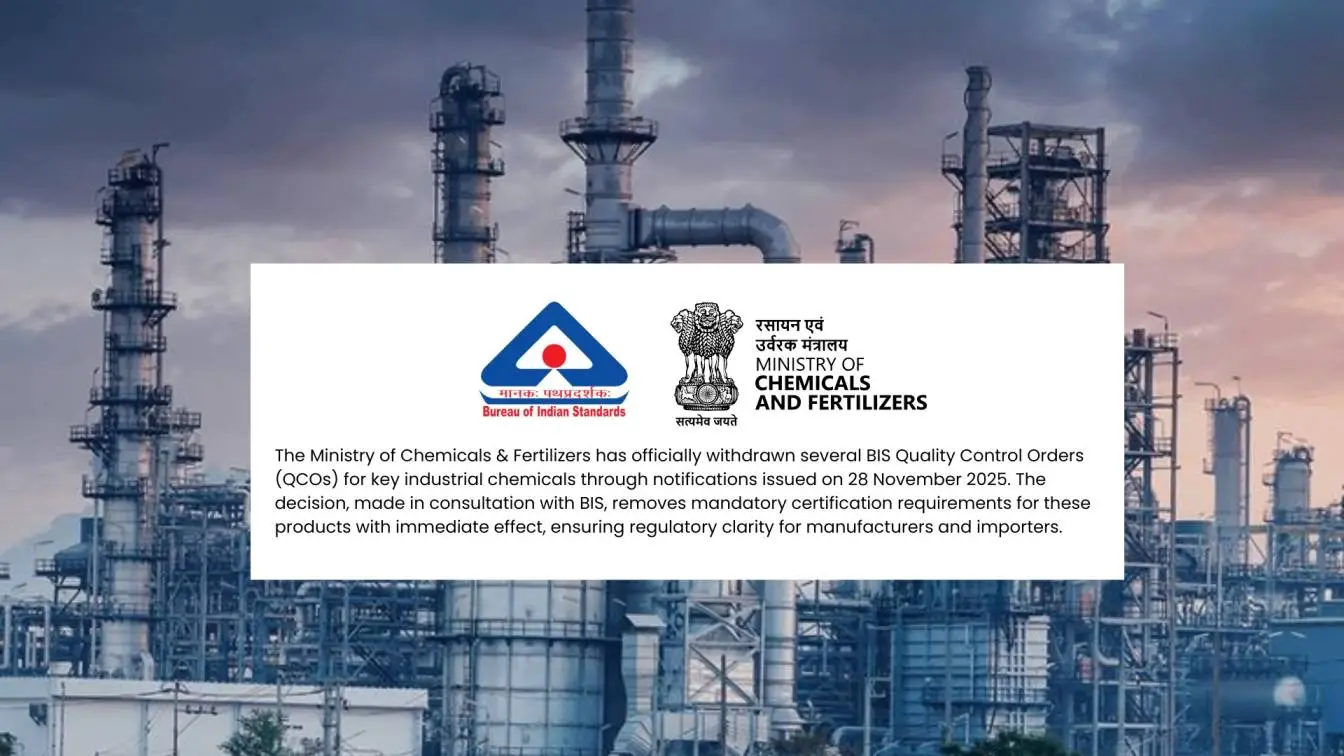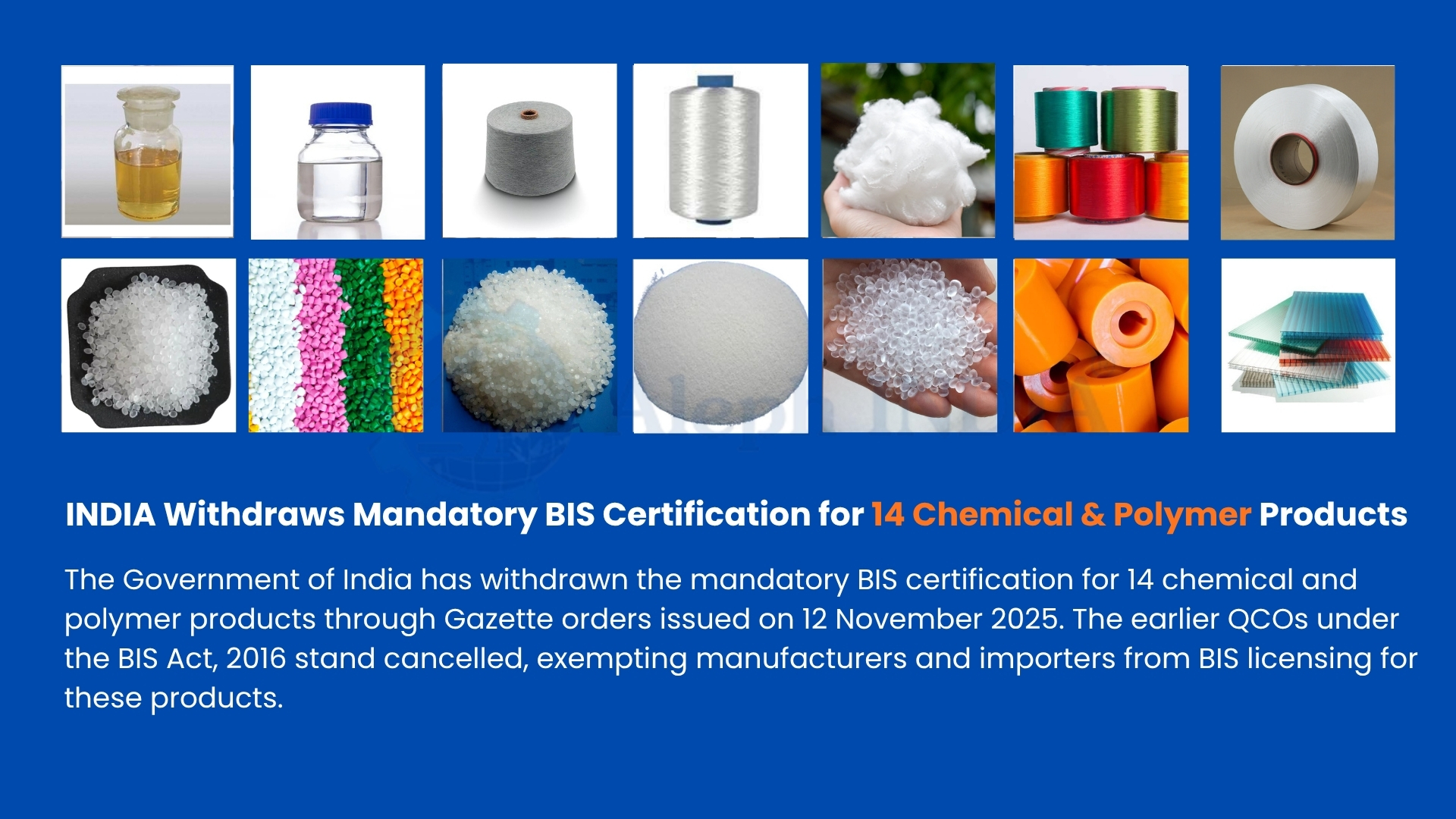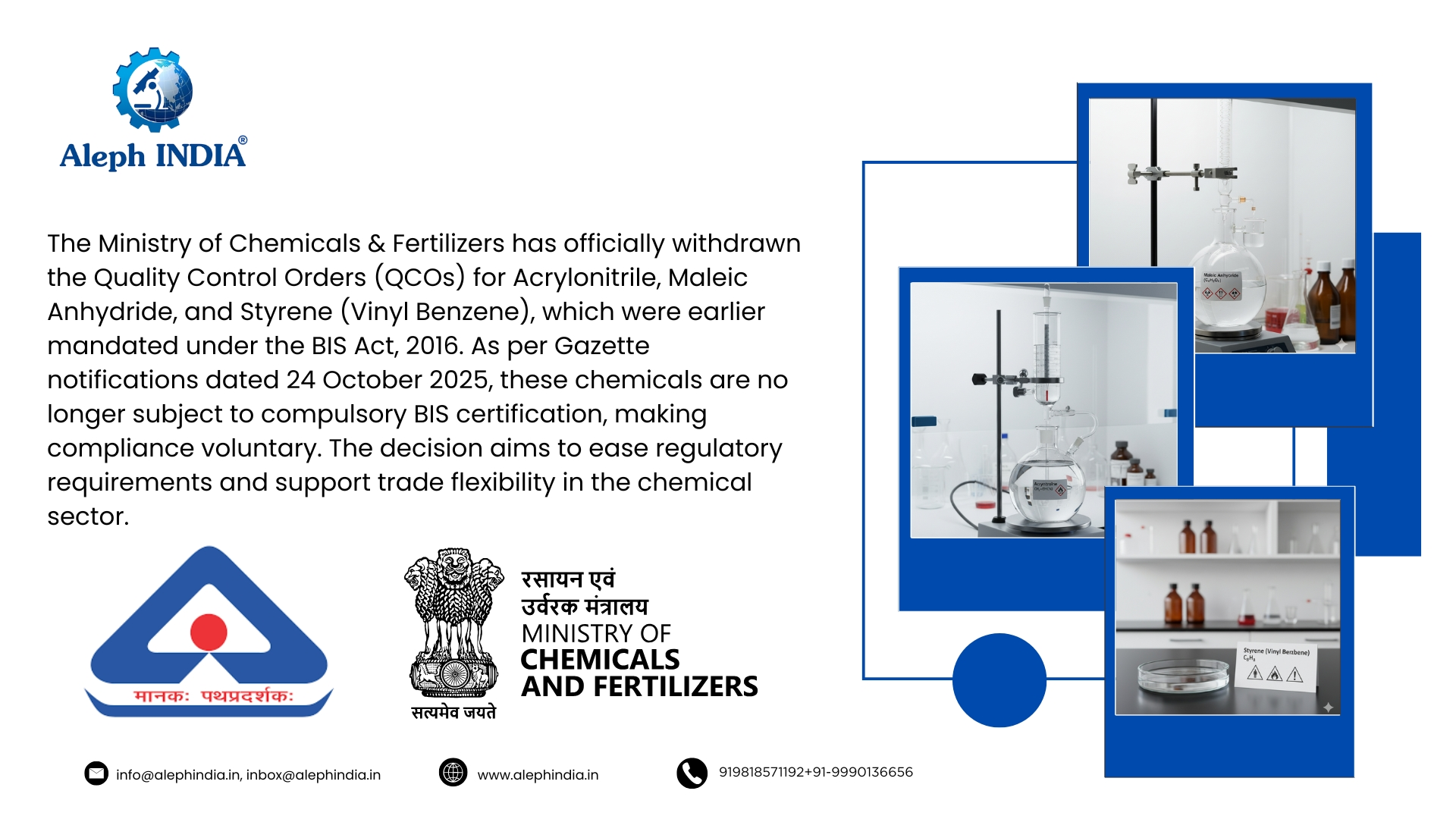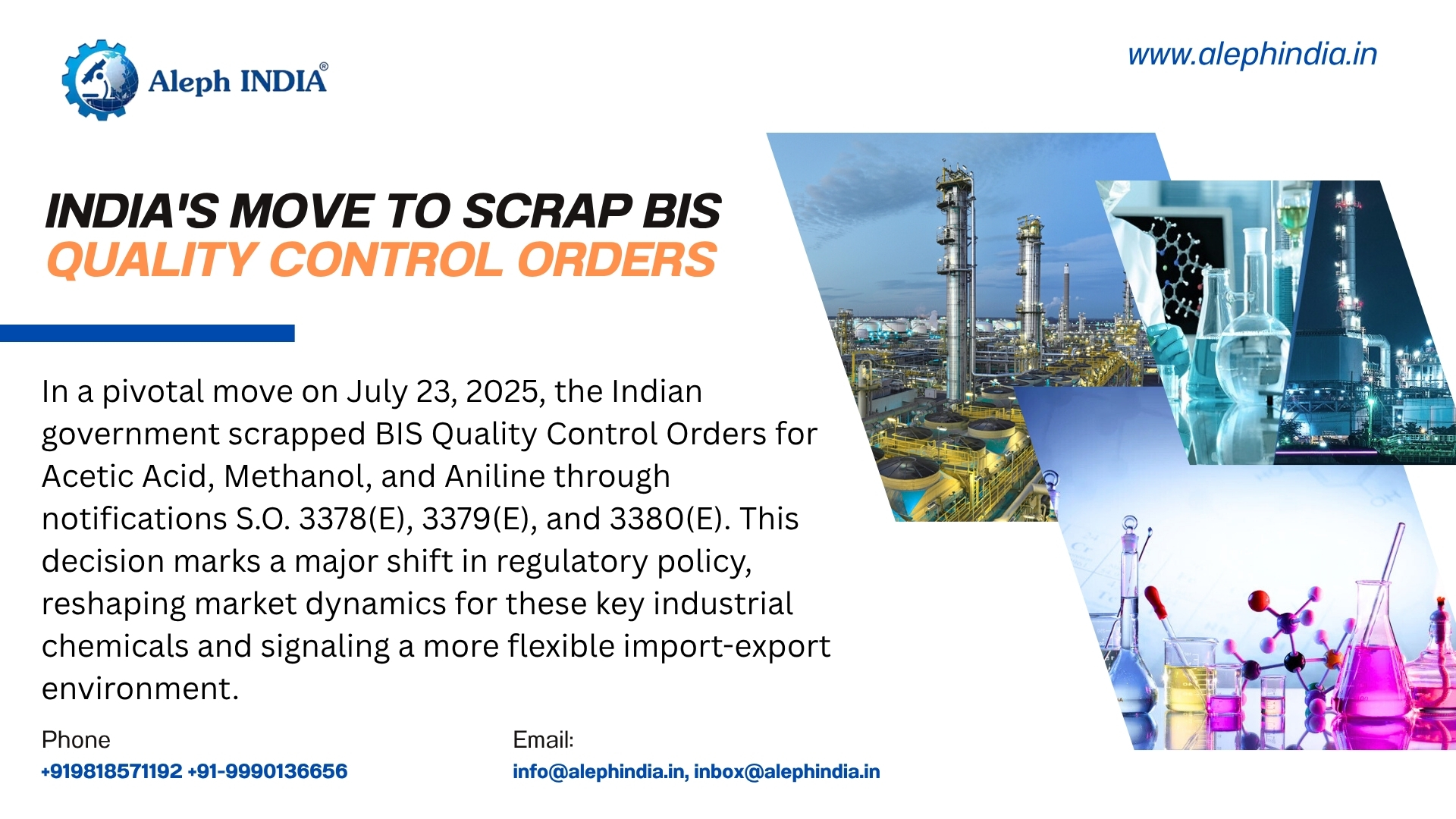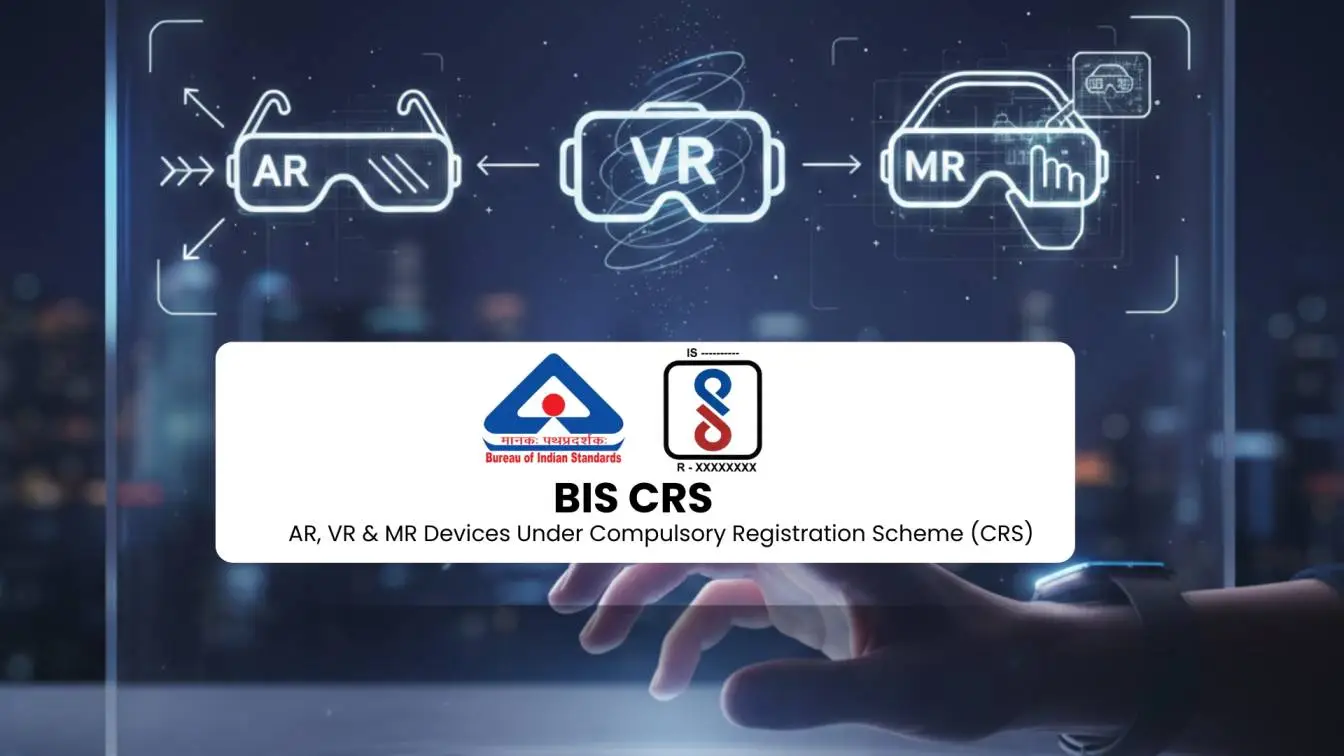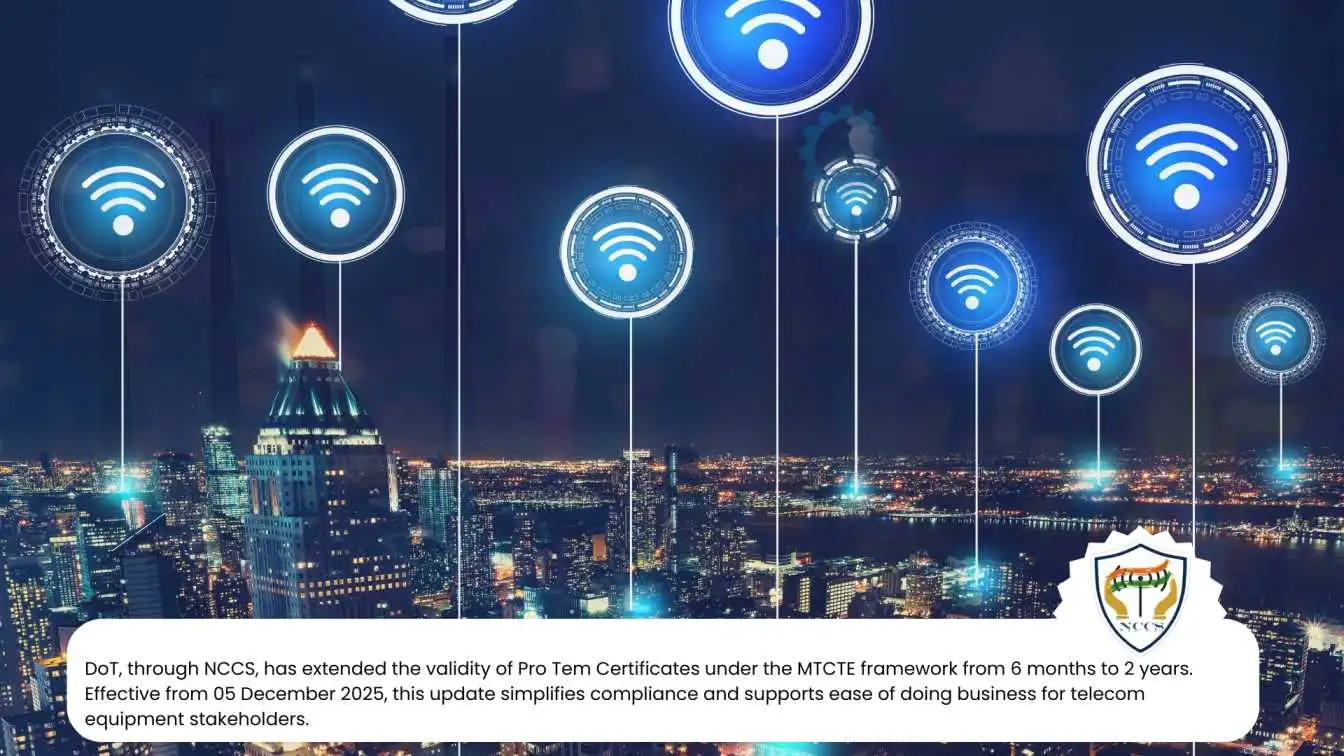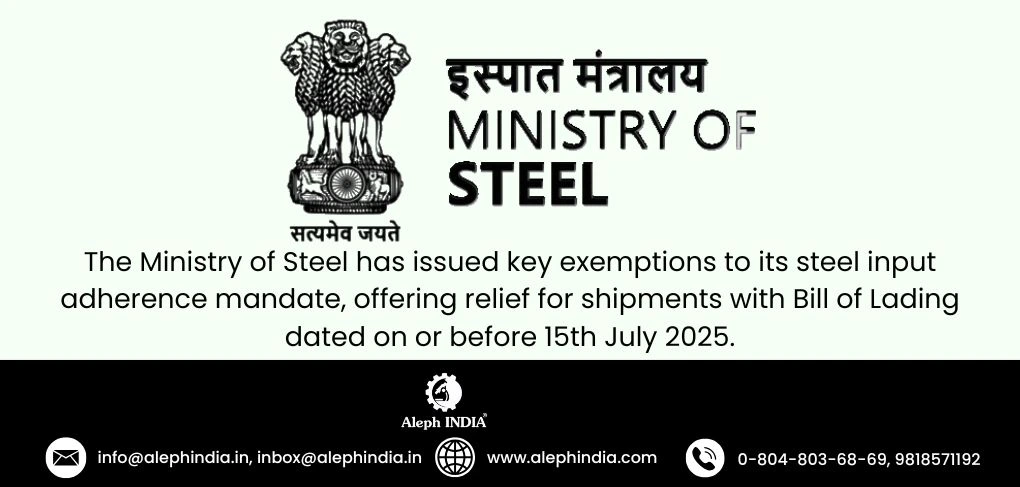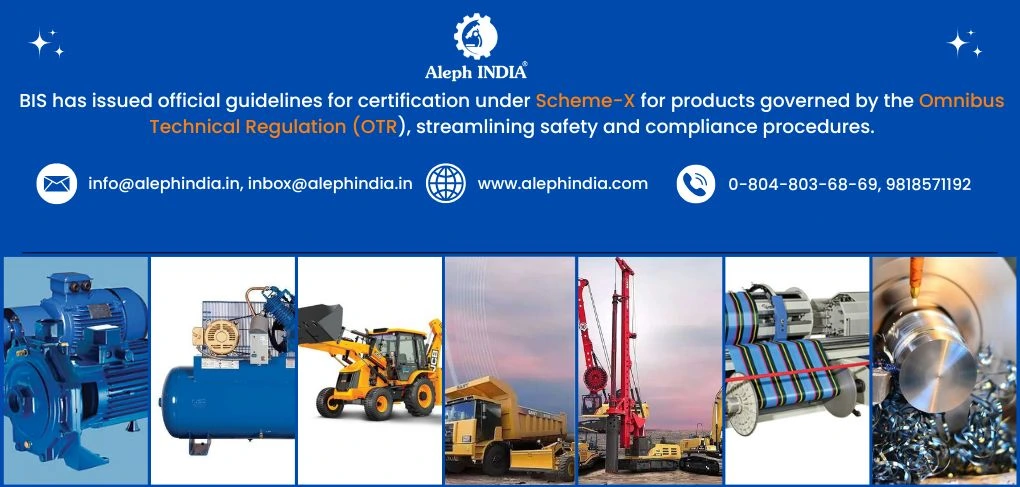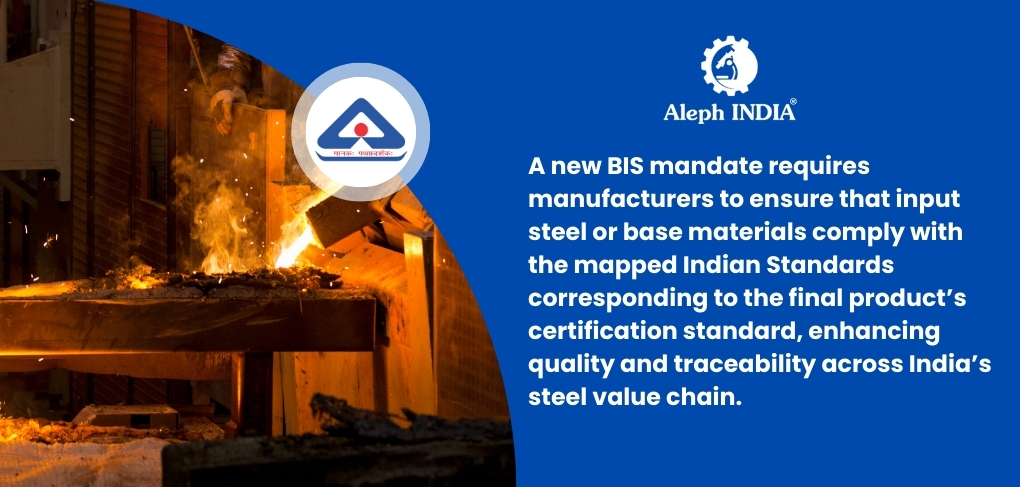- HOME
- ABOUT US
- SERVICES
-
LICENCE & CERTIFICATION
- BIS (ISI MARK) FOR FOREIGN MANUFACTURERS
- DOMESTIC PRODUCT CERTIFICATION (ISI MARK)
- BIS SCHEME X CERTIFICATION
- BIS CERTIFICATE OF CONFORMITY (CoC)
- BIS HALLMARKING
- REACH CERTIFICATION (GLOBAL)
- LABORATORY RECOGNITION SCHEME (LRS)
- WORLD MANUFACTURER IDENTIFIER (WMI) CODE
- ECO MARK
- TAC APPROVAL FOR AUTOMOBILE
- PESO CERTIFICATION
- SASO CERTIFICATION
- CDSCO CERTIFICATION
-
REGISTRATION
- BIS (CRS) REGISTRATION FOR ELECTRONIC PRODUCT
- WPC-ETA APPROVAL
- BEE CERTIFICATION
- E-WASTE MANAGEMENT (EPR)
- EPR REGISTRATION FOR PLASTIC WASTE MANAGEMENT
- EPR REGISTRATION FOR BATTERY WASTE MANAGEMENT
- EPR REGISTRATION FOR USED OIL
- LEGAL METROLOGY (LMPC)
- TEC/MTCTE APPROVAL
- CE CERTIFICATION
- UL CERTIFICATION
- ROHS LICENCE
- DRONE REGISTRATION
- MOEF LICENCE
-
AUXILIARY
- STANDARDIZATION (SCIENTIFIC) DIVISION
- TRAINING SERVICES (NATIONAL & INTERNATIONAL)
- IMPORT/EXPORT LICENCE
- FSSAI CERTIFICATION
- MSME/SSI/NSIC REGISTRATION
- ISO REGISTRATION
- BRAND REPRESENTATION
- LABORATORY EQUIPMENT AND SETUP
- TRADEMARK REGISTRATION
- MAKE IN INDIA SUPPORT
- AG-MARK LICENCE
- THIRD PARTY INSPECTION AND MONITORING SERVICES
-
- PORTFOLIO
- UPDATES
- CONTACT
- LOGIN
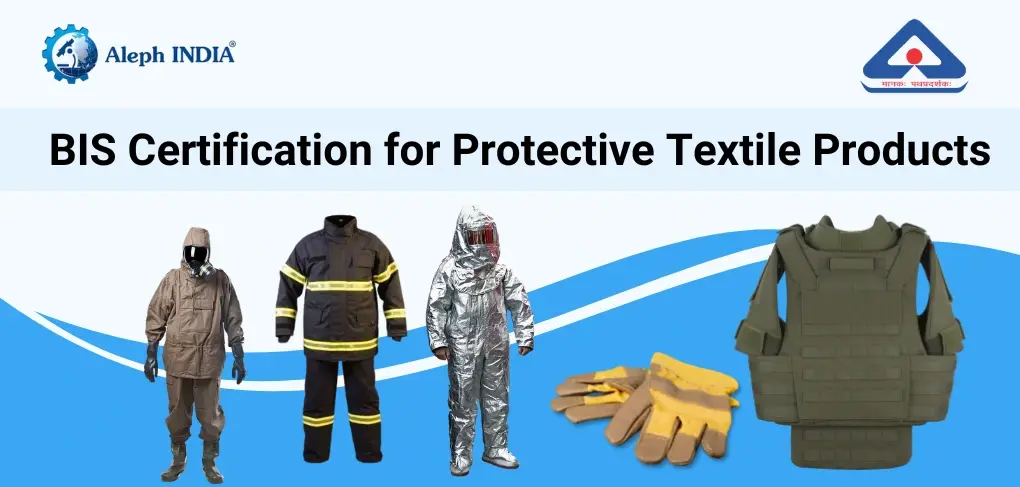
BIS Certification for Protective Textiles
Protective textiles are a type of technical textile that is used for protection purposes. Protective textiles have a wide range of applications, which is critical in the workplace. Protective textile products have been used to protect users from a wide range of hazardous environments and situations, both man-made and natural, such as heat, cold, storms, ultraviolet rays, snow, radioactive radiation, fires, friction, dust, microorganisms, static electricity, chemicals, and so on. Furthermore, some protective textiles may not fully comply with current and relevant BIS standards. In such cases, these may not provide complete protection.
To provide complete protection, all protective Textiles must comply with the applicable Indian standard and bear the standard mark under a license from the Bureau of Indian Standards. BIS-certified and ISI-marked protective textile products assure you that the protective textile products are of high quality and meet all the requirements of Indian standards.
BIS certification is required for all protective textiles such as Curtain and drapes, Upholstered composites, Protective clothing and gloves, Bullet resistance jackets, High visibility warning clothes, and Tactical 3-point sling universal to ensure that products meet Indian standards and are safe and reliable for customers.
Let’s first understand what is BIS and BIS licence.
What is BIS?
The Bureau of Indian Standards (BIS) is an Indian standard organization that manages, grades, and formulates standards for consumer products. BIS is responsible for marking and issuing quality certifications for goods in order to ensure the quality, stability, and reliability of the product for the end user. BIS has several certification schemes to ensure that the public receives high-quality, risk-free products.
BIS license: BIS runs a product certification scheme, also known as the ISI Mark certification scheme, to grant a BIS license to manufacturers. Bureau of Indian standard issues BIS licence to use the ISI mark on products that conform to applicable Indian standards and sell into the Indian market. ISI-marked products guarantee that they meet the requirements of applicable Indian standards.
To use the standard mark and sell products in the Indian market, manufacturers must obtain BIS certification for their products from BIS. BIS Certificate is issued only after verifying that the product complies with all applicable Indian standards. All manufacturers must make sure that their product meets the requirements of all applicable Indian standards to obtain a BIS Licence.
By obtaining BIS certification, companies can gain consumer trust, ensure consumer health and assure that their product is safe and out of physical harm.
You learned about BIS Licence in the above paragraph. You might be wondering how to get your product BIS certified. Let's go over how to get BIS certifications for protective textiles.
What is the Process of BIS certification for protective textile?
The process of BIS certification for protective textiles is as follows:
- Documentation: If you want to obtain BIS certification for your protective textile product, you must prepare all necessary documents before submitting your application.
- Application Submission: Once all relevant documents are prepared, the application form and supporting document will be submitted to the BIS Portal.
- Audit of manufacturing premises: Following scrutiny, BIS will appoint an auditor to audit manufacturing premises. During the inspection of manufacturing premises, BIS officials will draw a sample and send it to a BIS-approved laboratory for testing.
- Sample testing: All samples collected will be tested in a BIS-approved laboratory to ensure that the product meets the requirements of applicable Indian standards.
- Grant of BIS Licence: The product complies with the specified Indian standard, BIS will grant a BIS license to the manufacturer. The licence is initially granted for a period of not less than one year and up to two years. A renewal application and license fee must be submitted within 90 days of the license's expiration date.
Protective textiles
Standardizing protective textiles is critical because it is used to prevent or reduce damage to life and property caused by risks such as heat, cold, snow, friction, and dust. However, for its specification and performance requirements, the Bureau of Indian Standards has developed standards for protective textiles, which are listed below:
| S.No. | Indian Standard | Title |
|---|---|---|
| 1 | IS 15741:2007 | Textiles - Resistance to ignition of curtains and drapes - specification |
| 2 | IS 15768: 2008 | Textiles - Resistance to ignition of upholstered composites used for non-domestic furniture - Specification |
| 3 | IS 16890: 2018 | Textiles - Protective Clothing for Firefighters - Specification |
| 4 | IS 16874:2018 | Textiles - Protective Gloves for Firefighters - Specification |
| 5 | IS 15748 2007 | Textiles - Protective clothing for industrial workers exposed to heat (excluding firefighters' and welders' clothing) |
| 6 | IS 15742: 2007 | Textiles - requirements for clothing made of limited flame spread materials and material assemblies affording protection against heat and flame - specification |
| 7 | IS 15809:2017 | High visibility warning clothes - Specification (first revision) |
| 8 | IS 16655:2017 | Textiles - Protective clothing for use in welding and allied processes |
| 9 | IS 16725:2018 | Textiles - Tactical 3-point sling universal - Specification |
| 10 | IS 16726:2018 | Textiles - Pouch for ammunition and grenades made of disruptive pattern nylon 6 6 - Specification |
| 11 | IS 17051 :2018 | Textiles - Bullet resistant jackets - Performance requirements |
| 12 | IS 17286:2019 | Textiles - Water-proof multipurpose rain poncho with convertibility as bivouac - Specification |
Documents Required to get BIS certification in India
Documents required for BIS Certification are very specific and generic, which include:
- Laboratory Test Reports as per Product Standard
- Factory Registration Documents
- Manufacturing process flow chart
- In-house Testing Facilities
- Details of Authorised Signatory and other related documents
What is the BIS certification cost for Protective Textile products?
BIS certification costs include:
- Application fee
- Audit fee
- Sample testing fee
- License fee
- Marking fee
It also required investment in factory facilities, particularly in installing testing machinery for in-house factory test labs.
Conclusion:
Protective textile is currently gaining popularity due to the growing problem related to health and safety in the workplace. However, greater emphasis should be placed on its quality standards in view of the health and safety of the user. To ensure that protective textiles are of high quality and use the standard mark, all protective textile manufacturers must obtain BIS certification for their protective materials, such as Curtain and drapes, Upholstered composites, Protective clothing, and gloves for firefighters and industrial workers, etc.
However, compliance can be tricky. Getting BIS certification is not as easy as it first seems because it necessitates cooperation with authorities, sample collection and testing, and fulfilling BIS requirements. That’s why It is best to seek expert help so that they can handle the entire process and assist you in obtaining a BIS certificate.
Aleph India is a one-stop solution for all your compliance requirements. Aleph India provides a single window to the manufacturer and importer for product testing, training, technical certification, Auditing, Laboratory setup, and technical compliance services. Our Expert will assist you in getting your product tested and approved, providing useful insight and advice at every step of the process, from standard testing compliance to extensive documentation required for BIS certification.


